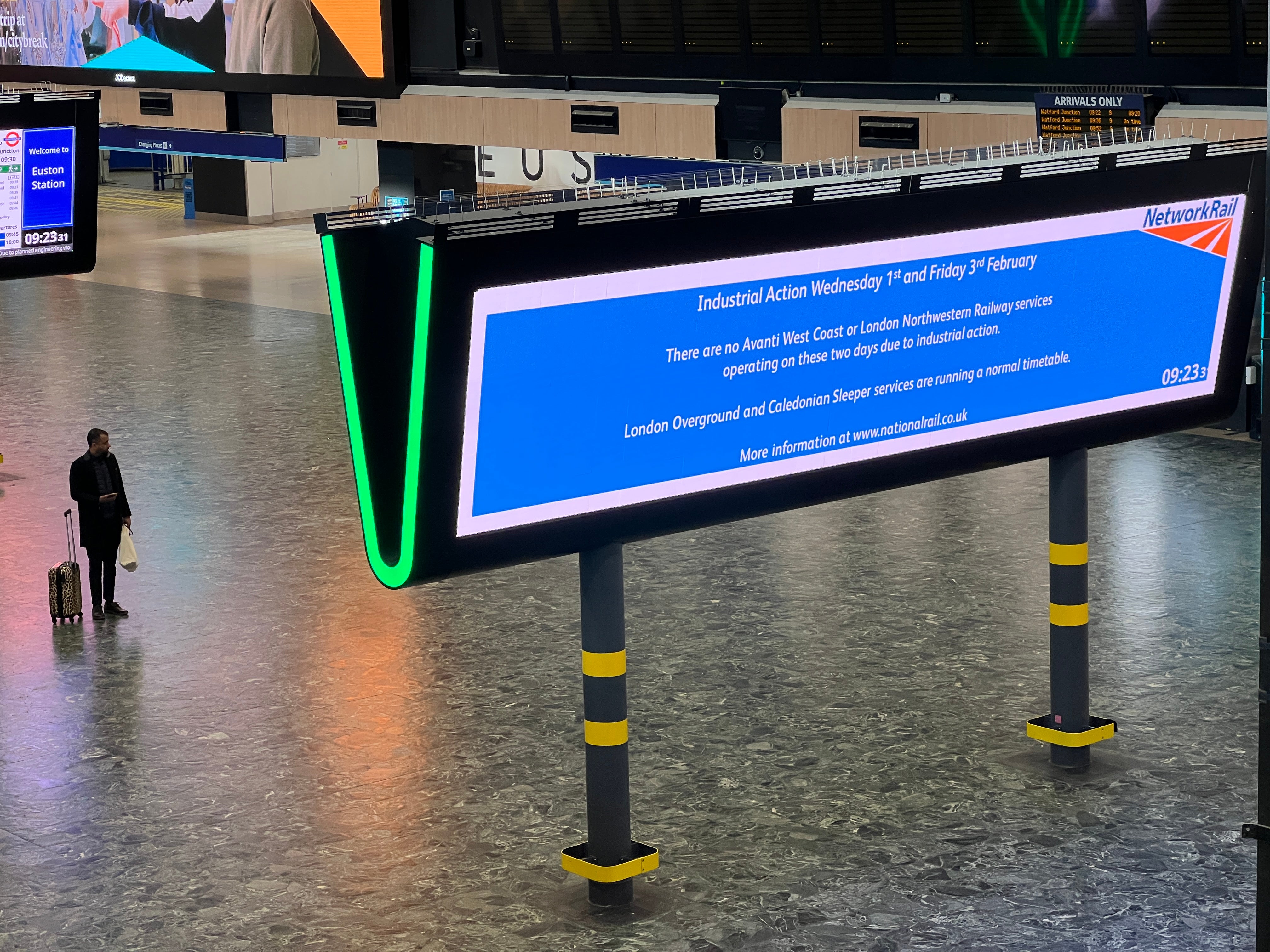No direct England-Scotland trains to run on February weekend as both West and East Coast main lines closed
Exclusive: Union boss accuses government and rail industry of ‘total disregard for the travelling public’

Your support helps us to tell the story
From reproductive rights to climate change to Big Tech, The Independent is on the ground when the story is developing. Whether it's investigating the financials of Elon Musk's pro-Trump PAC or producing our latest documentary, 'The A Word', which shines a light on the American women fighting for reproductive rights, we know how important it is to parse out the facts from the messaging.
At such a critical moment in US history, we need reporters on the ground. Your donation allows us to keep sending journalists to speak to both sides of the story.
The Independent is trusted by Americans across the entire political spectrum. And unlike many other quality news outlets, we choose not to lock Americans out of our reporting and analysis with paywalls. We believe quality journalism should be available to everyone, paid for by those who can afford it.
Your support makes all the difference.Network Rail has confirmed it will close stretches of both the East Coast and West Coast main lines over the weekend of 18 and 19 February – making nonstop journeys between Scotland and London impossible on Saturday or Sunday.
The infrastructure provider blames “a congested work programme caused by landslips, floods and strikes”.
But the boss of the train drivers’ union has accused the government and rail industry of “total disregard for the travelling public”.
Closures for engineering work of the UK’s two key rail arteries – the East Coast and West Coast main lines – rarely take place simultaneously. Normally one or other is kept open to allow passengers to travel between Scotland and London.
But on 18 and 19 February, the West Coast main line between Glasgow and London Euston will be blocked in the Preston area, while London King’s Cross – hub for the East Coast main line from Edinburgh, northeast England and Yorkshire – will be closed.
Trains from Glasgow will run no further south than Lancaster, while those from Edinburgh will end their journey in Peterborough or the small town of St Neots.
A Network Rail spokesperson said: “We always try to have a direct cross-border route open, but that has not been possible on this occasion.
“The industry, both Network Rail and train operators, have looked at the alternatives, all of which cause more disruption for passengers.
“We also have a congested work programme caused by landslips, floods and strikes, severely limiting those alternatives.
“We understand the inconvenience this will cause to some of our customers and wish to reassure them that this will be a one-off.”
Mick Whelan, general secretary of Aslef, the train drivers’ union, told The Independent: “When the rail industry sneaked the notice out separately, on both routes, they fully knew the impact it would have on the travelling public. But this is clearly nothing to do with the strikes.
“Sadly, this government, and the rail industry, have shown a total disregard for the travelling public by putting up fares, truncating timetables, and causing the strikes by staff in England. This announcement just shows their contempt for passengers and the railway in this country.”
Passengers must prepare for rail replacement buses or very circuitous train journeys. Travellers from Edinburgh are being urged to travel via Peterborough and Cambridge.
On the West Coast main line, the cheapest ticket currently on sale from Glasgow to London on 18 February involves a train to Lancaster, a bus to Buckshaw Parkway, and a local train to Manchester before finally catching an express to Euston, with the journey set to take nearly eight hours.
Anthony Smith, chief executive of the independent watchdog Transport Focus, said: “The scale of these works, closing both lines on top of the strikes and all the recent problems with TransPennine and Avanti, is really going to hurt.”
The most recent strike, by train drivers working for 15 operators, led to the cancellation of most services in England on 1 and 3 February. No further action by either the drivers’ union, Aslef, or the RMT union are currently planned.
Join our commenting forum
Join thought-provoking conversations, follow other Independent readers and see their replies
Comments